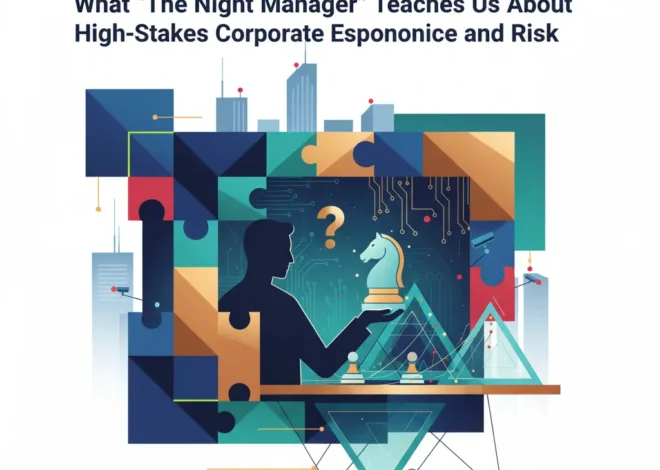
Man of Steel Under Siege: Inside the Criminal Probe Rocking Gupta’s GFG Empire
The sprawling industrial empire of British tycoon Sanjeev Gupta, once hailed as the “saviour of steel,” is facing yet another seismic shock. This time, the tremors are emanating from Eastern Europe, where police have conducted dramatic raids on the Galați steelworks in Romania, a cornerstone asset of Gupta’s GFG Alliance. The investigation, targeting a complex web of alleged embezzlement, tax evasion, and money laundering, adds a serious new chapter to the long-running saga of financial scrutiny that has enveloped Gupta since the collapse of his primary lender, Greensill Capital.
For investors, finance professionals, and leaders in the global economy, this development is more than just a regional police matter. It is a stark reminder of the inherent risks within opaque corporate structures and a critical case study on the intersection of heavy industry, ambitious financing, and regulatory oversight. As prosecutors sift through evidence, the raid in Romania could be the thread that unravels a much larger and more intricate tapestry of GFG’s financial dealings across the continent.
The Dawn Raid in Galați: What Allegations Are on the Table?
On a seemingly ordinary day, Romania’s Directorate for Investigating Organized Crime and Terrorism (DIICOT) descended upon the Liberty Galați plant, the country’s largest steel producer. The operation was part of a criminal investigation into the formation of an organized crime group with profound implications for the company’s financial health and Romania’s national economy. According to a statement from prosecutors, the probe centers on allegations that GFG orchestrated a scheme to devalue the steelworks’ assets for its own benefit.
The core of the allegations, as reported by outlets including the Financial Times, is that the company’s assets were fraudulently diminished, directly impacting its ability to meet its financial obligations. Prosecutors estimate the damages from these alleged activities to be approximately 10 million Romanian leu, which translates to around €2 million. This may seem like a small sum for a multi-billion-dollar enterprise, but in the world of financial crime, such figures often represent the visible tip of a much larger iceberg.
The investigation is examining several potential crimes, including:
- Embezzlement: Illegally appropriating assets by individuals in a position of trust.
- Tax Evasion: Deliberately underpaying taxes owed to the government.
- Money Laundering: Disguising the origins of illegally obtained money.
- Setting up an organized criminal group: A serious charge that implies a coordinated, premeditated effort to commit financial crimes.
GFG Alliance has stated it is cooperating with the investigation, asserting that its transactions have always been transparent and compliant with the law. However, for a company already under intense scrutiny from regulators in the UK and France, this new front in Romania significantly raises the stakes.
Gulliver's Curse: The Perils of Immortality in Modern Finance and Investing
Context is King: The Greensill Shadow and GFG’s Opaque Empire
To understand the significance of the Galați raid, one must look back to the spectacular collapse of Greensill Capital in March 2021. Greensill was a major player in the world of supply chain finance, a form of financial technology (fintech) designed to help companies manage their cash flow. GFG Alliance was Greensill’s largest single client, and the two entities were deeply intertwined. Sanjeev Gupta built his empire by acquiring distressed industrial assets, and Greensill provided the high-risk, high-volume financing that made this rapid expansion possible.
The collapse exposed how GFG had become heavily dependent on Greensill’s novel, and ultimately fragile, financing methods. Investigations following the collapse, including one by the UK’s Serious Fraud Office (SFO), began to probe suspected fraudulent trading and money laundering in connection with GFG’s financing arrangements with Greensill. The central question has always been whether the invoices used to secure financing from Greensill were legitimate or inflated, representing business that had not yet occurred or might never occur.
This history provides crucial context for the Romanian probe. Regulators across Europe are now examining the inner workings of GFG’s vast and notoriously complex corporate structure, which comprises hundreds of individual legal entities. This opacity makes it incredibly difficult for outsiders—and even regulators—to track the flow of money and assets, a feature that can be exploited to hide liabilities or illicitly move capital. The events in Galați suggest that Romanian authorities believe they have found evidence of such activities within their jurisdiction.
To illustrate the timeline of GFG’s mounting troubles, consider these key events:
| Date | Event | Significance |
|---|---|---|
| 2019 | GFG Alliance acquires the Galați steelworks from ArcelorMittal. | Marks a major expansion into Eastern Europe, funded by complex financing. |
| March 2021 | Greensill Capital collapses into administration. | Cuts off GFG’s primary source of funding, triggering a severe cash crunch and intense scrutiny. |
| May 2021 | UK’s Serious Fraud Office (SFO) launches an investigation into GFG Alliance. | Formalizes suspicions of fraud and money laundering related to the Greensill financing. |
| May 2022 | French authorities raid GFG offices in Paris as part of their own probe. | Expands the legal challenges for GFG into another major European jurisdiction. |
| October 2023 | Romanian authorities raid the Galați steelworks. | Opens a new legal front and alleges specific crimes of embezzlement and asset stripping at a key operational site. |
Implications for the Economy, Investing, and the Future of Industry
The unfolding drama at GFG Alliance has far-reaching implications that extend beyond the company’s balance sheets. For the global economy, particularly in the industrial sector, it raises critical questions about the stability of vital assets. The Galați steelworks, for instance, is a major employer and a strategic component of Romania’s industrial base. Any disruption or long-term damage to its operations could have significant local and national economic consequences.
For those involved in finance and investing, the GFG story is a masterclass in risk assessment. It underscores the critical importance of looking beyond the surface-level appeal of a rapid growth story. Key lessons include:
- Transparency is Non-Negotiable: Investors and lenders must demand clear, straightforward corporate structures. When a company’s finances are too complex to understand, it’s often by design.
- Fintech is Not a Panacea: While financial technology can unlock efficiency and capital, it also introduces new risks. The Greensill case shows how innovative products like supply chain finance can be misused if not properly regulated and understood.
- Concentration Risk is Real: GFG’s over-reliance on a single financial partner was its Achilles’ heel. Diversification of funding sources is a fundamental principle of sound corporate finance.
The situation also puts a spotlight on the broader challenges facing heavy industries like steel. These sectors are capital-intensive and often operate on thin margins, making them susceptible to financial shocks. As the world moves toward decarbonization, these companies need massive, stable investment to transition to greener technologies. The GFG scandal could make traditional banking and stock market investors more wary of the sector, potentially complicating this vital economic transition. As one report noted at the time of the Greensill collapse, the uncertainty cast a long shadow over the future of thousands of steel jobs.
The 190-Year-Old Giant Reawakens: Is Jardine Matheson Asia's New Private Equity Powerhouse?
Conclusion: A Reckoning for a Modern Industrial Empire
The police raid on the Galați steelworks is a pivotal moment in the ongoing scrutiny of Sanjeev Gupta’s GFG Alliance. It transforms abstract concerns about financial engineering into concrete criminal allegations of embezzlement and fraud at a specific, vital industrial site. While the investigation is still in its early stages, it represents a significant escalation of the legal pressures mounting on Gupta’s empire from multiple jurisdictions.
This story is a powerful intersection of modern finance, industrial economics, and corporate governance. It serves as a stark warning to the investing community about the perils of opaque business practices and over-leveraged growth strategies. As Romanian prosecutors dig deeper, their findings could have a ripple effect across the global financial system, influencing how regulators approach complex corporate structures and innovative trading mechanisms in the future. For the “Man of Steel,” the siege is tightening, and the future of his empire hangs precariously in the balance.


